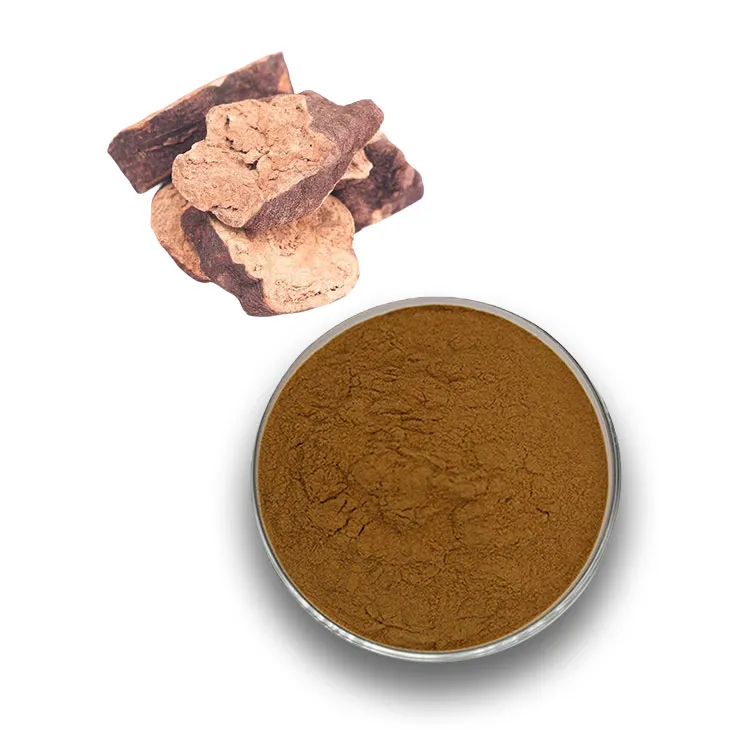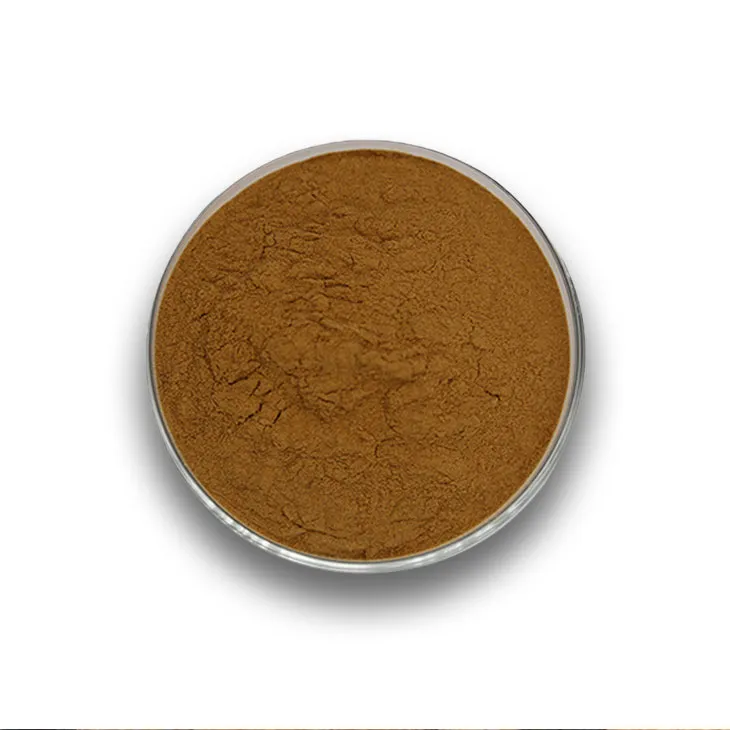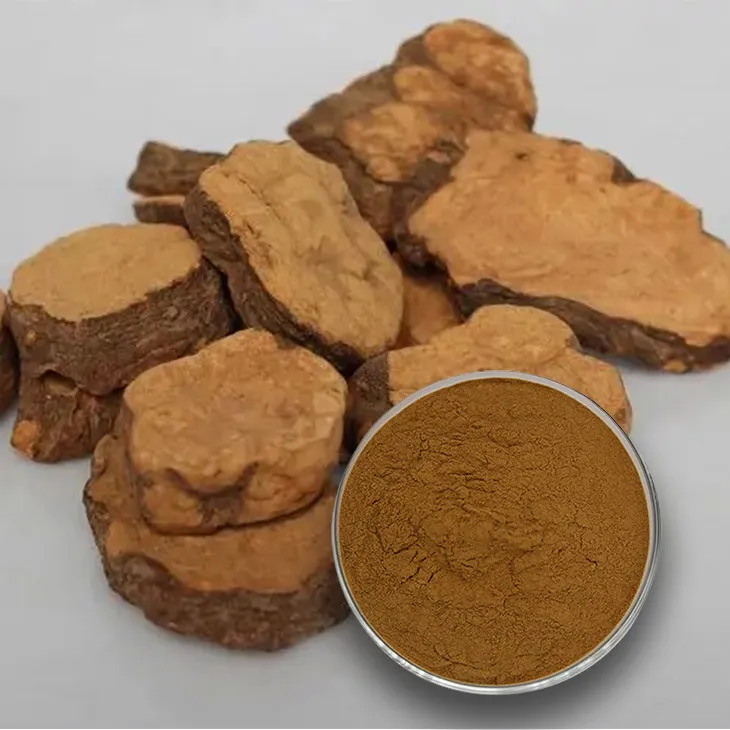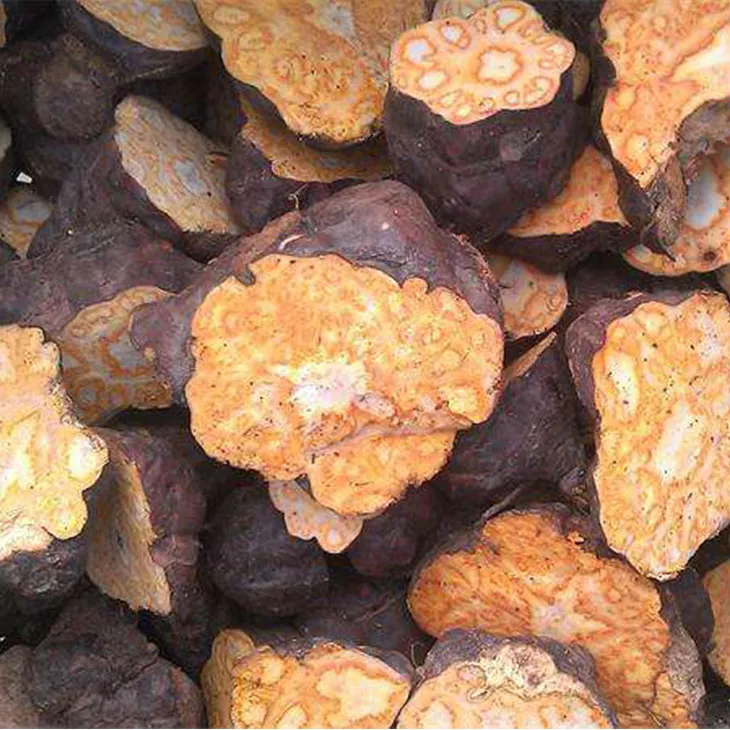- 0086-571-85302990
- sales@greenskybio.com
Is polygonum multiflorum extract beneficial for diabetes? Are these all safe and suitable for diabetic patients?
2024-11-12

1. Introduction
Diabetes is a chronic metabolic disorder that has reached epidemic proportions globally. Management of diabetes often involves lifestyle modifications, medications, and sometimes the use of natural supplements. Polygonum multiflorum, a traditional Chinese medicinal herb, has been studied for its potential health benefits, including its relation to diabetes. However, the question of whether its extract is truly beneficial and safe for diabetic patients remains a topic of great interest and research.

2. The Properties of Polygonum multiflorum
Polygonum multiflorum is rich in various bioactive compounds. These include polygonum glycosides, stilbenes, and flavonoids. These compounds are thought to be responsible for many of the herb's pharmacological effects.
2.1 Polygonum Glycosides
Polygonum glycosides have been shown to have antioxidant properties. Antioxidants are important in diabetes as they can help reduce oxidative stress, which is often elevated in diabetic patients. Oxidative stress can damage cells, including pancreatic beta - cells that are responsible for insulin production. By reducing oxidative stress, polygonum glycosides may potentially play a role in protecting these cells and thus have an impact on blood glucose regulation.
2.2 Stilbenes
Stilbenes in Polygonum multiflorum have been studied for their anti - inflammatory effects. Inflammation is closely associated with diabetes. Chronic low - grade inflammation in the body can interfere with insulin signaling pathways. The anti - inflammatory properties of stilbenes may help improve insulin sensitivity, allowing cells to respond better to insulin and thereby facilitating better blood glucose control.
2.3 Flavonoids
Flavonoids are known for their multiple biological activities. In the context of diabetes, they may contribute to blood - lipid regulation. Diabetic patients often have abnormal lipid profiles, which can increase the risk of cardiovascular complications. Flavonoids in Polygonum multiflorum extract may help in reducing triglyceride and cholesterol levels, which is beneficial for overall diabetes management.

3. Evidence of Positive Effects on Diabetes
3.1 Blood Glucose Regulation
Several studies have suggested that Polygonum multiflorum extract may have a positive effect on blood glucose levels. In animal models of diabetes, administration of the extract has been shown to lower fasting blood glucose levels. This may be due to its effect on improving insulin sensitivity or enhancing insulin secretion from the pancreas. However, it should be noted that animal studies do not always directly translate to human responses, and more research in human subjects is needed.
3.2 Diabetic Complications
- Regarding diabetic nephropathy, some experimental evidence indicates that Polygonum multiflorum extract may have a protective effect on the kidneys. It may help reduce proteinuria (excessive protein in the urine), which is a common sign of kidney damage in diabetes. This could be related to its antioxidant and anti - inflammatory properties, which can protect the renal cells from damage.
- For diabetic retinopathy, the extract's antioxidant and anti - inflammatory effects may also play a role. Oxidative stress and inflammation are involved in the development of retinopathy. By reducing these factors, it may potentially slow down the progression of retinal damage in diabetic patients.
- When it comes to diabetic neuropathy, although the evidence is still limited, some studies suggest that the anti - inflammatory and antioxidant properties of the extract may help in alleviating nerve damage and associated symptoms such as pain and numbness.

4. Safety Considerations for Diabetic Patients
4.1 Toxicity Concerns
Polygonum multiflorum has been associated with some toxicity issues. Unprocessed Polygonum multiflorum can contain substances that may be harmful, especially in large amounts. However, most of the extracts used in research and commercial products are processed to reduce toxicity. Nevertheless, diabetic patients, especially those with compromised liver or kidney function, should be cautious when using Polygonum multiflorum extract. Liver and kidney function are often affected in diabetes, and any additional stress on these organs from potentially toxic substances should be avoided.
4.2 Drug - Herb Interactions
- Many diabetic patients are on medications such as metformin or sulfonylureas to control their blood glucose levels. There is a possibility of drug - herb interactions between Polygonum multiflorum extract and these medications. For example, it may enhance the hypoglycemic effect of some drugs, leading to a risk of hypoglycemia (low blood sugar). This can be dangerous as hypoglycemia can cause symptoms such as dizziness, weakness, and in severe cases, loss of consciousness.
- Also, diabetic patients may be taking medications for other comorbidities such as hypertension or hyperlipidemia. The extract may interact with these drugs as well. For instance, if a patient is taking a statin for high cholesterol and also using Polygonum multiflorum extract, there could be an interaction that affects the efficacy or safety of either the drug or the extract.

5. Dosage and Administration
If Polygonum multiflorum extract is considered for use in diabetic patients, proper dosage and administration are crucial. The appropriate dosage may vary depending on factors such as the patient's age, overall health status, and the severity of diabetes. Currently, there is no standardized dosage for its use in diabetes treatment. In addition, the form of the extract (e.g., powder, capsule, tincture) may also affect its absorption and effectiveness. It is important that any use of the extract be under the guidance of a healthcare professional to ensure safety and effectiveness.
6. Conclusion
Polygonum multiflorum extract shows some potential in terms of positive effects on diabetes, particularly in blood glucose regulation and potentially in preventing or alleviating diabetic complications. However, significant safety concerns exist, especially regarding toxicity and drug - herb interactions. Until more comprehensive research is conducted, diabetic patients should approach the use of Polygonum multiflorum extract with caution. Healthcare providers should also be aware of the potential benefits and risks when advising patients on complementary and alternative therapies for diabetes management.
FAQ:
Question 1: What are the potential benefits of Polygonum multiflorum extract for diabetes?
Some studies suggest that Polygonum multiflorum extract may have certain beneficial effects on diabetes. It may help regulate blood sugar levels. Components in the extract might have antioxidant properties that can reduce oxidative stress associated with diabetes. Also, it could potentially improve insulin sensitivity, which is crucial for proper glucose metabolism in diabetic patients. However, more research is needed to fully confirm these effects.
Question 2: Are there any known mechanisms by which Polygonum multiflorum extract affects diabetes?
The possible mechanisms are complex. One proposed mechanism is related to its antioxidant components. Oxidative stress is often elevated in diabetes, and the antioxidants in Polygonum multiflorum extract may counteract this. Another possible mechanism could be through influencing certain signaling pathways involved in glucose uptake and insulin action. But these are still areas of ongoing research and not yet fully understood.
Question 3: Is Polygonum multiflorum extract completely safe for diabetic patients?
While Polygonum multiflorum extract has shown some potential benefits, its safety for diabetic patients is not without concerns. Some forms of Polygonum multiflorum can be toxic if not properly processed. There may also be potential interactions with medications that diabetic patients are taking. For example, it could interfere with the effectiveness of diabetes medications or cause unexpected side effects. So, it is not advisable for diabetic patients to use it without consulting a healthcare provider.
Question 4: How should diabetic patients use Polygonum multiflorum extract if it is considered beneficial?
If a diabetic patient wants to use Polygonum multiflorum extract under the premise that it may be beneficial, they must first consult a doctor. The doctor will consider the patient's overall health condition, including the type and severity of diabetes, other comorbidities, and the medications they are currently taking. Based on these factors, the doctor may then recommend a proper dosage and form of the extract, and closely monitor the patient's response.
Question 5: What research has been done on the relationship between Polygonum multiflorum extract and diabetes?
There have been some in - vitro and in - vivo studies exploring the relationship. In - vitro studies often look at the effects of the extract on cell lines related to diabetes, such as pancreatic beta - cells that produce insulin. In - vivo studies may use animal models of diabetes to observe changes in blood sugar levels, insulin sensitivity, and other relevant parameters after administering Polygonum multiflorum extract. However, the translation of these findings to human applications still requires more extensive and rigorous research.
Related literature
- The Effects of Polygonum multiflorum on Blood Glucose Regulation: A Review"
- "Safety and Efficacy of Herbal Extracts, including Polygonum multiflorum, in Diabetes Management"
- "Polygonum multiflorum and its Potential Role in Diabetic Complications"
- ▶ Hesperidin
- ▶ citrus bioflavonoids
- ▶ plant extract
- ▶ lycopene
- ▶ Diosmin
- ▶ Grape seed extract
- ▶ Sea buckthorn Juice Powder
- ▶ Beetroot powder
- ▶ Hops Extract
- ▶ Artichoke Extract
- ▶ Reishi mushroom extract
- ▶ Astaxanthin
- ▶ Green Tea Extract
- ▶ Curcumin Extract
- ▶ Horse Chestnut Extract
- ▶ Other Problems
- ▶ Boswellia Serrata Extract
- ▶ Resveratrol Extract
- ▶ Marigold Extract
- ▶ Grape Leaf Extract
- ▶ blog3
-
Cranberry Plants and Skin - care Products.
2024-11-12
-
Shikonin
2024-11-12
-
Medicinal Marshmallow Extract
2024-11-12
-
Garcinia Cambogia Extract
2024-11-12
-
Selenium yeast
2024-11-12
-
Cranberry Extract
2024-11-12
-
Marigold Extract
2024-11-12
-
Genistein
2024-11-12
-
Bilberry Extract
2024-11-12
-
Phyllanthus Emblica Extract
2024-11-12
-
Hesperidin
2024-11-12





















